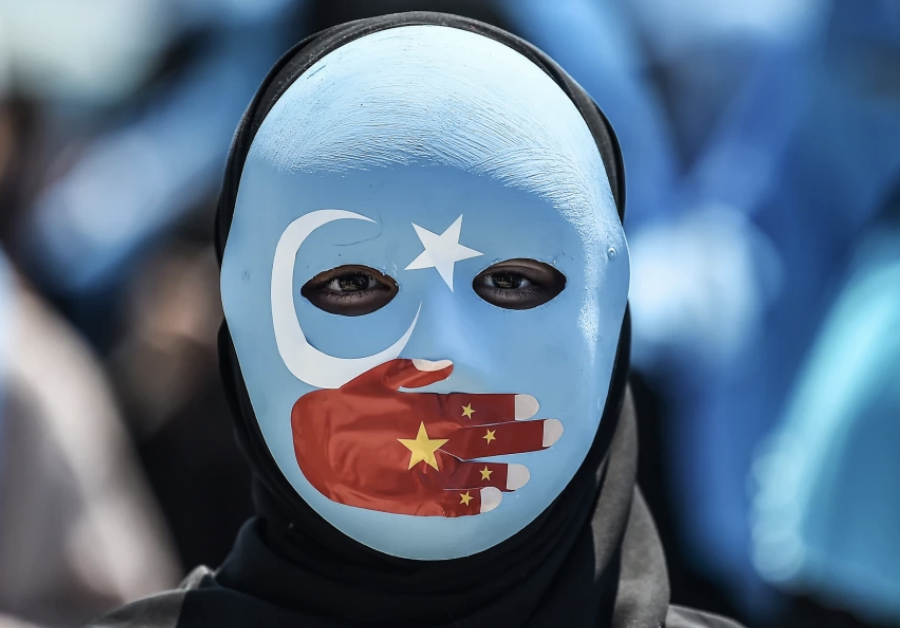The UN remains steadfast in its commitment to ensuring that human rights violations in China’s Xinjiang province do not go unpunished, despite facing criticism from NGOs for its perceived inaction. A recent on-site visit by the International Labour Organization has sparked debate.
Ongoing Concerns
The economic world’s indices may fluctuate, but concerns about human rights persist. In late August, a delegation from the International Labour Organization (ILO), a UN-affiliated body, quietly journeyed to China’s Xinjiang province. This region has faced allegations of severe repression against the Uighur minority by the Chinese government. According to “Nikkei Asia,” this marked the first known visit by the ILO since allegations of widespread labor rights violations surfaced, with millions of Muslim Uighurs reportedly subjected to arbitrary detention and forced labor.
An ILO spokesperson stated that the visit aimed to engage in “technical discussions on the implementation of international conventions against workplace discrimination and forced labor within China’s laws and practices.” These conventions, ratified by Beijing in 2006, came into effect in early August.
Controversial Visit
The UN agency declined to divulge further details about the visit, which was viewed with skepticism by advocates for the Uighur cause, who lamented not being informed beforehand. Dolkun Isa, President of the World Uighur Congress, told “Nikkei Asia” that even if the intentions were good, such missions provided the Chinese Communist Party with opportunities to whitewash its crimes and promote propaganda.
Ma Xingrui, the Xinjiang party secretary, used the occasion to denounce “reckless accusations” of human rights violations by “certain anti-Chinese forces” in the local newspaper “Xinjiang Daily.” He also expressed hope that the ILO delegation would maintain a “fair and objective attitude.”
Xi Jinping’s Visit
Coincidentally, Xi Jinping himself paid a brief visit to Xinjiang, where he celebrated the “hard-won social stability” in the region. In 2014, the government launched a campaign to regain control, citing attacks attributed to Uighur separatist militants. However, it consistently denies the existence of repression against this Muslim minority or the existence of labor camps where nearly a million people are said to have been held. Beijing refers to these facilities as “vocational training centers” designed to combat extremism.
Dolkun Isa argues, “Visits like the one by the ILO won’t eliminate forced labor programs. What’s needed are creative and tangible measures from the international community, including the ILO, to end this system of oppression and exploitation.”
Criticism from Amnesty International and Human Rights Watch
Criticism isn’t limited to the ILO visit. Amnesty International and Human Rights Watch (HRW) have also censured the United Nations for its perceived inaction. Just a year ago, former UN High Commissioner for Human Rights Michelle Bachelet published a report, against Beijing’s objections, suggesting possible crimes against humanity. Her successor, Volker Türk, pledged to follow up, but both NGOs accuse him of not doing enough. His office responded, affirming that the High Commissioner “engaged in a longer-term process with Chinese authorities,” including implementing the report’s recommendations.
Amnesty and HRW continue to call for an international on-site investigation and appeal to the member states of the Human Rights Council, which will convene from September 11 to October 13 in Geneva. However, this mechanism seems unlikely given Beijing’s political influence within the UN body. In October 2022, China secured a victory at the UN when a slim majority of the 47 Human Rights Council member states rejected a proposal by several Western countries to hold a debate on Xinjiang.
In the realm of human rights, the path ahead remains fraught with challenges, while international organizations grapple with their roles and responses in the face of ongoing global concerns.
FAQs
Q: Why is the UN criticized for its inaction in Xinjiang? A: The UN has faced criticism for its perceived inaction in addressing human rights violations in China’s Xinjiang province, particularly concerning the Uighur minority.
Q: What was the purpose of the recent visit by the International Labour Organization (ILO) to Xinjiang? A: The ILO’s visit aimed to engage in technical discussions regarding the implementation of international conventions against workplace discrimination and forced labor within China’s laws and practices.
Q: What are the main concerns regarding human rights violations in Xinjiang? A: Allegations include arbitrary detention, forced labor, and widespread human rights abuses against the Uighur minority in Xinjiang. These allegations have drawn international scrutiny and condemnation.

